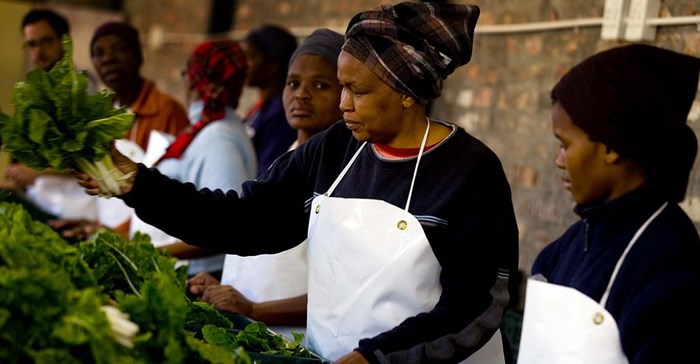
Top stories



ESG & SustainabilitySouth Africa’s carbon tax should stay: climate scientists explain why
Britta Rennkamp et al. 1 hour



More news

















In many African cities, urban agriculture is one of the main ways that fresh produce is supplied to local markets. For example in Dakar, Kinshasa, and Accra almost all the leafy greens you can buy are grown in the city itself.
While urban agriculture in Cape Town, South Africa, might not play as significant a role in the city’s food system overall, the 6,000 urban farmers who are growing their own food and selling surplus on Cape Town’s Cape Flats find it an irreplaceable part of their livelihoods.
For such farmers, it is well-known that growing their own food helps them diversify their family’s diet, and selling surplus provides additional income. But our research shows you don’t have to farm at a large scale to reap significant benefits.
By talking to the farmers we found that even having a small backyard food garden puts you in touch with neighbours, NGOs and local government, which in turn creates a wealth of spin-off benefits.
Our research shows that building social networks is one of the greatest benefits of urban agriculture in poor areas. This research was conducted on the Cape Flats, a vast residential area of mainly low-cost council housing and shacks.
As a legacy of apartheid-era racial segregation, the Cape Flats has high unemployment rates, limited access to amenities and prevalent crime. In such an environment, fear and mistrust curtail positive social interactions, while economic hardship limits access to adequate healthy food.
In this context, the real value of urban agriculture is not only in generating income for the economically marginalised, but it is found in expanding social networks. These networks help farmers draw on emotional and practical support during tough times.
The research involved interviews with 59 farmers throughout the Cape Flats, from home gardeners to larger commercial farming groups.

Urban farmers were not trying to maximise their profits, but were actually forming strong social networks by working together to plant gardens.
Flickr/Gemma Pitcher
Most studies have been focused on the economics of urban agriculture. Only a couple of case studies done in Cape Town and Nairobi indicated that the benefits to urban farming were far more nuanced.
By asking more qualitative questions, these studies revealed something startling. Urban farmers were not trying to maximise their profits, but were actually forming strong social networks by working together to plant gardens.
Inspired by these findings, we decided to see if the same applied on the Cape Flats. The research took me on walks from house to house in areas such as Khayelitsha, Lavender Hill, Vrygrond and Mfuleni – some of Cape Town’s most resource-constrained areas. The farmers interviewed increasingly confirmed that urban agriculture creates valuable social networks.
Our findings show that social networking occurs on three levels. These are:
creating friendships between neighbours;
broadening networks of acquaintance with other farmers; and
improving access to influential contacts in government, civil society and the market.
This means that urban farmers not only develop the kinds of friendships they can draw on during tough times. But they also develop broader networks with other farmers, with NGOs, with government and with local markets that allow them to build a career.
These new findings show that by focusing on income generation alone, much of the existing research underestimated urban agriculture’s potential for building sustainable livelihoods in poorer areas. The findings prove that even at a small scale, urban agriculture contributes to building social networks that provide much-needed practical and emotional support.
Based on our findings, we believe it is crucial for development practitioners to understand urban agriculture holistically, rather than focusing disproportionately on outputs or profit margins. Improved collaboration between NGOs and local government is also highly recommended to help benefit these farmers.
There are excellent examples of urban agriculture on the Cape Flats, and much potential still exists for this sector to expand sustainable livelihoods and improve quality of life, with the right support.
![]()
This article was originally published on The Conversation. Read the original article.

The Conversation Africa is an independent source of news and views from the academic and research community. Its aim is to promote better understanding of current affairs and complex issues, and allow for a better quality of public discourse and conversation.
Go to: https://theconversation.com/africa